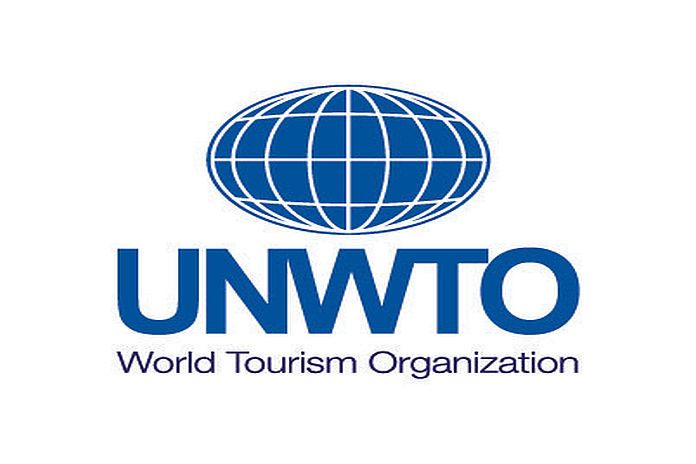MADRID, Spain – We are almost at the end of what has been the most challenging year in the history of tourism. Almost overnight, the pandemic brought global tourism to a complete standstill.
Millions of people missed chances to explore different places and embrace different cultures and customs. And the world lost out on opportunities for tourism to create jobs, support businesses, kick-start development, and to protect and preserve the very things we leave our homes to see.
However, in the face of such a downturn, tourism ends the year more united and determined than ever.
The UNWTO Global Tourism Crisis Committee, created in March soon after the pandemic was declared, recently met for a final time in 2020.
This unique cross-sector platform coordinates international efforts and has proven to be crucial in guiding our response to COVID-19 and informing the measures and tools for mitigating its impact on jobs and businesses.
Notwithstanding new and ongoing developments of the pandemic, the Committee is geared towards accelerating the restart of tourism, always factoring in the most recent situation of global health.
Harmonized, consistent travel protocols are essential for restoring confidence in international travel and getting tourism moving again. UNWTO will maintain the momentum we gained in 2020 into the new year.
Over recent months, we have made political and business leaders listen and make tourism a part of their plans. We have emphasized the relevance of tourism to almost every part of our societies, most recently amplified through our partnership with CNN and reinforced through high-level, in-person visits to Member States including Portugal, Tunisia, Namibia, Brazil, Uruguay, Egypt, Italy, France, Belgium and Saudi Arabia.
This joined-up approach contributed to ensuring tourism has been given record levels of financial support and political goodwill and rewarded with public recognition. The European Commission has led the way in turning encouraging words into firm actions, most notably with its unprecedented economic support for tourism at this crucial time.
Through in-person visits to leaders in the Americas, Africa and Europe, and through welcoming the vice president of the European Commission, Margaritis Schinas, to address the most recent meeting of the Global Tourism Crisis Committee, we now call on governments to do more. To show that safe international travel is not only possible but, given the social and economic benefits that only tourism can deliver, essential too.
Without doubt, news of a vaccine against the COVID-19 virus gives us reason for cautious optimism. However, the restart of tourism – and the many millions of people who depend on it – cannot wait for mass vaccinations to become a reality.
It is time now to rethink quarantine rules for tourists. To embrace innovation and new solutions for testing travellers before or after their journeys. Alongside this, restrictions on travel must be eased or lifted in a responsible and coordinated manner as soon as it is safe and feasible.
The important steps undertaken to ensure better coordination and refusing to stand still, are the precursors to prepare for the new year. 2021 could be a critical year for the restart of tourism, but only if we continue along this path.
The foundations are there for this to be a turning point. It is a moment for directing our sector towards greater sustainability and inclusivity and realizing its massive potential to deliver lasting development and change for all. We cannot waste this chance.
Now, as we pause and reflect, I send you my best wishes from Madrid. Wherever you are, and however you celebrate, I wish you all a safe and restful festive period.
Statement by the Global tourism crisis committee
Meeting on the occasion of the Global Tourism Crisis Committee, virtually from Lisbon, Portugal, on December 9, 2020, to accelerate the coordination of international cross-border travel principles and protocols in view of a safe and seamless restart of tourism, the members of the Committee recalled, in line with WHO and ECDC/EASA1 guidance, that:
- The prevalence of COVID-19 in travellers is estimated likely to be lower than the prevalence in the general population or among contacts of confirmed cases.
- Travellers should not be considered as a high-risk population and should be subject to the same regulations or recommendations as applied to the local population.
- In the current epidemiological situation, quarantine or systematic testing for SARS-CoV-2 of air travellers is not recommended.
The Committee called for:
- Support for WHO in its efforts to work with partners to update and review evidence-based guidance for international travel consistent with International Health Regulations provisions focusing on providing guidance for effective, risk-based, and coherent approaches (including targeted use of diagnostics and shorter quarantine lengths or the abolishment of quarantines) that consider transmission levels, response capacities in origin and destination countries, and relevant travel-specific considerations.
- The establishment of internationally agreed evidence-based risk-assessment indicators and their harmonization among countries as is the case of the European Union traffic light system.
- Countries to ensure that measures affecting international traffic are risk-based, evidence-based, coherent, proportionate and time-limited.
- The implementation of the International Civil Aviation Organization (ICAO) CART Take-off guidance and the Manual on Testing and Cross-border Risk Management Measures.
- The stepping up of the coordination regarding the vaccination certificates to ensure a timely definition on common and harmonized principles and protocols related to vaccination certificates and international travel.





